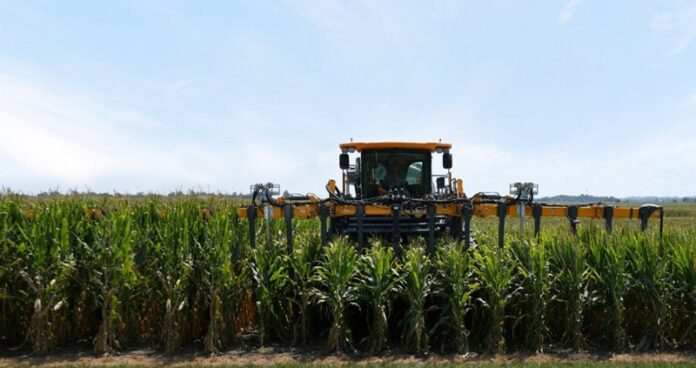
Pairwise, a food and agriculture company known for bringing the first gene-edited food to the U.S. market, and Bayer today announced a new five-year, multi-million Dollar agreement focused on innovations in short-stature corn. This new program leverages Pairwise’s Fulcrum™ platform and builds on the success of the companies’ initial five-year collaboration for corn, soy, wheat, cotton, and canola.
The upcoming collaboration between Pairwise and Bayer will be focused on optimizing and enhancing gene-edited short-stature corn for future use in Bayer’s Preceon™ Smart Corn System. Short-stature corn – with a targeted height of 30 to 40 percent less than traditional corn – is an innovative new approach to growing corn and offers a number of sustainability benefits, including protections from crop loss due to increasingly severe weather events and extreme winds brought about by climate change. Short-stature corn also allows for more precise application of inputs throughout the growing season, sustainably growing more through reduced risk of crop loss.
“Pairwise’s proprietary base editing tools allow for specific changes at virtually any location in the genome, which has the potential to make targeted and much needed improvements in agriculture,” said Bob Reiter, Head of R&D at Bayer’s Crop Science Division. “These kinds of new genomic techniques are extraordinarily focused and produce results much more quickly and precisely than the conventional breeding process, ensuring that we can accelerate the delivery of solutions that growers need.”
The initial five-year collaboration focused on corn, soy, wheat, cotton and canola with the aim of empowering producers to grow more with fewer inputs on the same amount of land. The partnership, which concluded in June 2023, resulted in 27 novel traits being transferred into Bayer’s testing programs. Results of the program demonstrated significant commercial value including edited corn phenotypes with a 20 percent increase in kernel row numbers, which could lead to significantly more yield on the same number of acres. Another outcome has been edited soy that reduces the severity of Asian soybean rust, potentially reducing the need for fungicides to combat the disease and protecting the potential for higher yields.
These, and other significant achievements, were made possible through the development of custom gene editing tools by Pairwise. These include REDRAW™, or RNA encoded DNA replacement of alleles with CRISPR, a precise templated editing toolbox that can make any type of small edit at CRISPR-targeted sites. Another tool is SHARC™, a proprietary enzyme that works well for cutting, base editing, and REDRAW editing. These tools will also be used in the new collaboration focused on advancing short-stature corn.
“We look forward to continuing our work with Bayer, with new emphasis on contributing to their novel smart corn system,” added Tom Adams, Co-founder and CEO at Pairwise. “Working closely with Bayer on furthering this revolution in corn gives us the market reach to enable our technology innovations to more quickly adjust to the biggest challenge of our time: the changing climate.”
Pairwise has already demonstrated the successful use of CRISPR and other emerging technologies to accelerate the delivery of new products to markets, and recently launched its first product, Conscious™ Greens into the U.S. foodservice channel. Through the leading use of cutting-edge technologies, and due to the efficiency of the company’s Fulcrum Platform, the product was advanced from concept to commercialization in just four years. In addition, Pairwise works with other innovative companies and has licensed its IP for applications in additional crops of global importance, including licensing elements of the Fulcrum Platform to Tropic Biosciences for applications in banana and coffee.







